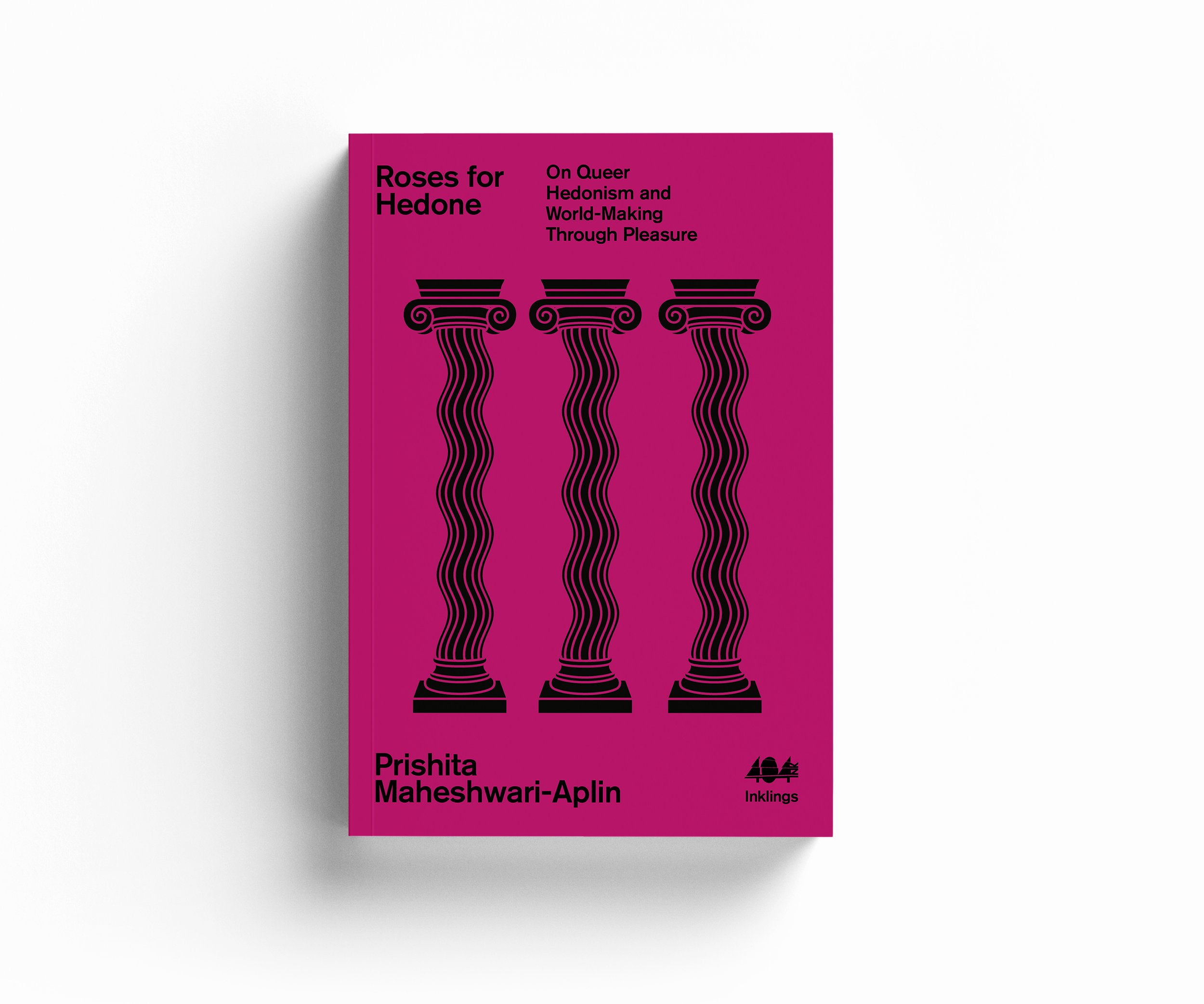Inklings #28: Roses for Hedone - Prishita Maheshwari-Aplin
PUBLISHING MAY 2025
Roses for Hedone explores queer hedonism not as a momentary phenomenon or indulgence, but rather a transformational route – whether via euphoric raves, inspired art, marching side by side in protest, or sharing simple delights – through which we can learn from our past, connect in the present, and look towards a more fair, hopeful future together.
PUBLISHING MAY 2025
Roses for Hedone explores queer hedonism not as a momentary phenomenon or indulgence, but rather a transformational route – whether via euphoric raves, inspired art, marching side by side in protest, or sharing simple delights – through which we can learn from our past, connect in the present, and look towards a more fair, hopeful future together.
PUBLISHING MAY 2025
Roses for Hedone explores queer hedonism not as a momentary phenomenon or indulgence, but rather a transformational route – whether via euphoric raves, inspired art, marching side by side in protest, or sharing simple delights – through which we can learn from our past, connect in the present, and look towards a more fair, hopeful future together.
What more can pleasure offer us, and how can we transform this pleasure into intentional practice in pursuit of a collective liberatory future?
When a society marginalises a people, their humanity is revolutionary in all its hunger and joy. As the queer community worldwide faces rampant transphobia, rising hate crime, and unequal access to support services – all in the context of humanitarian crises, a climate crisis, and a destabilised political landscape – hedonism can play a central role in how we seek to organise as a symbiotic system. When viewed through a queer lens, hedonism undergoes a process of transformation, embodying the power for change and much more.
Borrowing from the Ancient Greeks’ understanding of love’s multiplicity, Roses for Hedone explores queer hedonism not as a momentary phenomenon or indulgence, but rather a transformational route – whether via euphoric raves, inspired art, marching side by side in protest, or sharing simple delights – through which we can learn from our past, connect in the present, and look towards a more fair, hopeful future together.






